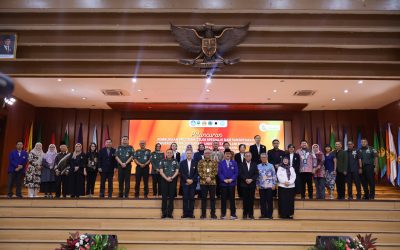When Vaccines Fail: Unpad Study Reveals HPV’s Hidden Role in Genital Wart Treatments
In the fight against sexually transmitted infections, vaccines are often celebrated as miracle tools. But new research from Universitas Padjadjaran has uncovered a crucial complication: certain strains of Human Papillomavirus (HPV) may reduce the effectiveness of using measles, mumps, and rubella (MMR) vaccines as an alternative therapy for genital warts. The case study, led by Dr. Pati Aji Achdiat and colleagues at the Department of Dermatology and Venereology, shows how high-risk HPV strains can resist immunotherapy, complicating treatment strategies for young patients.
The team studied a 17-year-old male patient with 51 genital wart lesions. Although MMR vaccine injections have been successful in clearing warts in many patients, this case was different. The patient tested positive for both low-risk HPV types (6 and 11) and a high-risk oncogenic strain (HPV 16). After three rounds of MMR immunotherapy, the warts remained unchanged, proving resistant to treatment. Ultimately, the lesions required surgical removal through electrocautery.
The findings carry a strong public health message: not all warts are equal, and not all treatments will work universally. Physicians and patients should be aware that HPV testing plays a crucial role before deciding on immunotherapy. Early detection of high-risk strains could save time, costs, and patient distress. Moreover, prevention through HPV vaccination and safer sexual practices remains the most powerful strategy to curb HPV’s widespread burden.
This study contributes directly to SDG 3: Good Health and Well-Being by strengthening the evidence base for better STI management. Universitas Padjadjaran’s work reinforces the importance of integrating advanced diagnostics into routine care while raising awareness about prevention. By linking global vaccine debates to local realities, Unpad shows how Indonesian research continues to shape global health innovation.





0 Comments